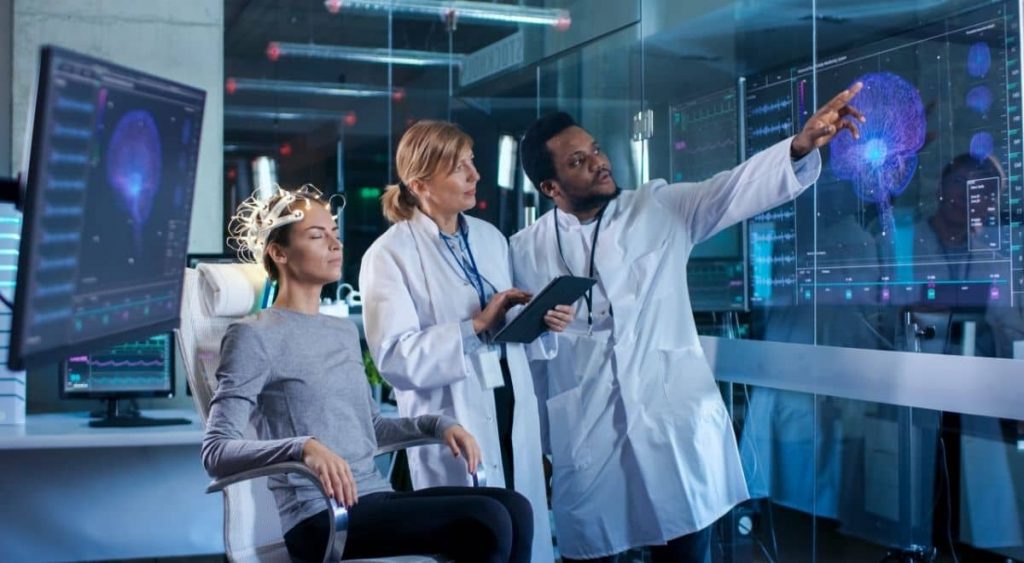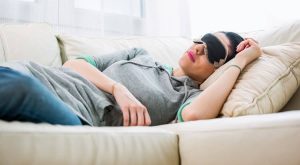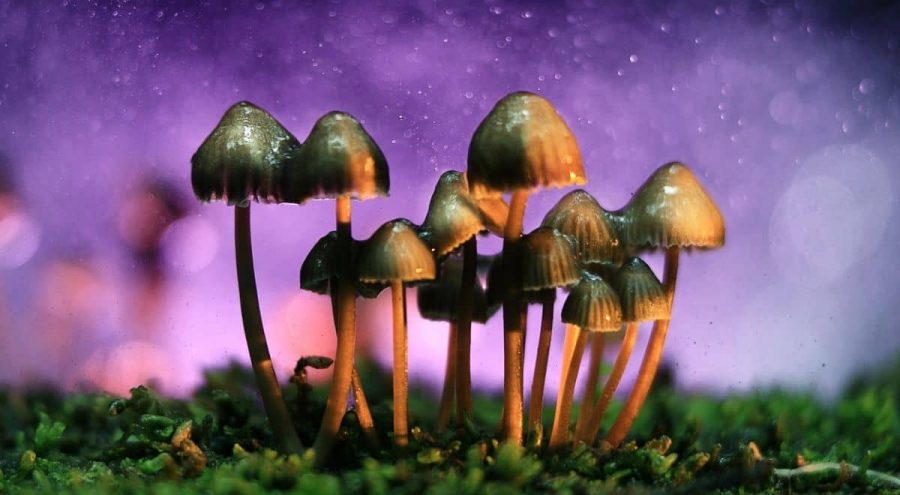LISTEN TO THIS ARTICLE:
The promise of a new treatment
A growing body of evidence suggests that psilocybin (the active ingredient in magic mushrooms) may be an effective treatment for severe forms of depression. This could mean a new option for people who have not responded to existing treatments.
Over the past 20 years there has been a revival in research on psychedelic drugs and their potential as medicines. Clinical trails are exploring several substances that were classified as illegal by the Controlled Substance Act of 1970. Some of the drugs being studied include 3,4-methylenedioxy-methamphetamine (MDMA, Ecstasy, Molly), ketamine (Special K), mescaline, lysergic acid diethylamide (LSD), and psilocybin.
The study of magic mushrooms and other psychedelics is changing psychiatry in two ways. First, conducting brain research mapping on individuals using psychedelic substances allows researchers to better understand brain function in general. Secondly, studying the effects of psychedelics on the brain will eventually lead to more treatment options to choose from, especially for individuals with hard-to-treat or chronic mental health conditions.
What’s “magic” about psilocybin?
For thousands of years magic mushrooms have been used in shamanic traditions, religious ceremonies, and by indigenous cultures around the world. The Psilocybe genus of mushrooms (of which there are more than 200 species) grows in damp, forested regions of the United States, Europe, South America, and Mexico. There are three main reasons why psilocybin could change the treatment of some chronic mental health conditions:
- It is relatively safe (compared with current treatment options). Psiocybin has no known serious side effects or health risks when used carefully under medical supervision
- It is fast-acting, meaning patients can potentially get relief almost immediately after a single treatment.
- It seems to have lasting effects in cases of treatment-resistant depression.
Psilocybin is about 100 times less potent than LSD. Eating the dried mushrooms causes changes in perception of space and time, visual distortions, and feelings of social connection.
What do psychedelic drugs do in the brain?
Psilocybin acts on the brain’s prefrontal cortex, the part of the brain that controls thoughts, mood, and perception. The drug affects how nerve cells communicate with each other using chemical signals, such as serotonin.

In recent trials, researchers found that taking magic mushrooms in a carefully prescribed way and in a monitored setting is medically safe.
Furthermore, psilocybin may help bring about lasting psychological and behavioral changes. Participants in early studies reported improved mood both immediately and within one week after treatment. For anyone in the depths of depression, this could literally be a lifesaver.
Another positive of psilocybin is its lasting effect. Research suggests that in some cases the benefits may last as long as 6 months.
In one study, terminally ill cancer patients took psilocybin. Eighty-three percent reported improved mood and less anxiety along with improved quality of life, life meaning, and optimism. Additionally, 67% of participants said their psilocybin experience was one of the top five meaningful experiences of their lives.
Psilocybin is also an attractive treatment option because it has fewer side effects and drug-drug interactions for people taking other medications, such as those receiving chemotherapy or drugs for high blood pressure.
How long until psilocybin treatment is available?
As of this writing, the FDA has not approved psilocybin for clinical use. In November 2019, the FDA granted psilocybin a breakthrough therapy designation to be studied for the possible treatment of major depressive disorder, and it is currently available in research settings only. There is a phase 2 trial underway, with 80 participants at seven U.S. sites.
According to ClinicalTrials.gov, there are now 24 ongoing trials of psilocybin, studying its use in treating conditions such as major depressive disorder in cancer patients, anorexia nervosa, obsessive-compulsive disorder, and depression associated with Alzheimer disease. Experts forecast that it could be at least one or two more years before your doctor could be able to write a prescription for psilocybin.
Another psychedelic drug, esketamine, is now FDA approved for the treatment of adults with treatment-resistant depression and those with associated suicidal thoughts. The FDA approval process for esketamine took a similar length of time as that anticipated for psilocybin.
Thomas R Insel, MD, Former director of U.S. National Institute of Mental Health and researcher at the Usona Institute (one of the sites currently approved to conduct psilocybin research), says, “Before we move to patient populations of hundreds of thousands… we will need strong evidence and robust data generated in large-scale clinical trials that meet the highest standards of scientific integrity. We must work carefully to set the right standards and to balance the rush for action with the Hippocratic oath of first, do no harm.”
What happens when you ingest magic mushrooms?
Usually, people notice the effects of magic mushrooms within 30 minutes of eating them, and they can last three to six hours.
Reported experiences include:
- Visual changes: an increase in the intensity of colors, the morphing and motion of stationary objects, and visions of geometric forms.
- Changes in thoughts: intense emotions, alterations in the perception of time, and perceived encounters with spiritual beings.
- Physical sensations: feeling a glowing, spreading warmth, nausea, tingling, or numbness in arms and legs.
- Mood changes: feeling happy, sad, fearful, or irritable.
- Changes in your of perception of space and time.
- Dizziness, weakness, and tremors.
The experience can be spiritual, mystical, or transcendental. The drug can make some people feel like they have come in contact with a mystical power. People report witnessing the interconnectedness of the universe; reporting they discovered new revelations about themselves and the world. For some, such experiences can be very therapeutic, comforting, and healing. But for a small number, the experience is disturbing and unpleasant.
But what are the risks?
Sometimes people report upsetting hallucinations, anxiety, and panic symptoms after taking psilocybin. Some people worry they could get addicted. This idea probably comes from the fact that in 1970, the FDA classified psilocybin as having “a high potential for abuse.” But research studies and anecdotal stories of people using magic mushrooms recreationally have not demonstrated any evidence of risk of addiction or dependence.
It is possible that psilocybin could trigger psychosis. Psychosis, when a person loses contact with reality, can be a mental health emergency. They may experience delusions and hallucinations. People with a family history of schizophrenia or who were diagnosed with a mental health disorder at a young age may be at greater risk for developing psychosis with psilocybin.
Over 30 million Americans are estimated to have used LSD, psilocybin, or mescaline without any reported long-term negative health effects. Researchers have not been able to show any increased risk of worsening mental health status with use of specific psychedelics (LSD, psilocybin, mescaline, peyote). In fact, they have found lower rates of mental health problems among subjects who reported having used psychedelics.
Who could psilocybin help?
Researchers believe that psilocybin may be helpful in the treatment of depression, obsessive-compulsive disorder, anorexia nervosa, substance use disorders, treatment-resistant headaches, and psychological distress associated with end-of-life issues. San Francisco-based clinical psychologist Dr. Mollie Pleet tells WebShrink,“The most promising data thus far support the use of psilocybin to treat depression.”

So far, research studies have looked at treating chronic depression, cancer-related depression and anxiety, and post-traumatic stress disorder (PTSD) with psilocybin. Up to 7.4 million American adults suffer from treatment-resistant depression. For more information about depression or to make sense of your symptoms, head over to WebShrink’s Depression page.
Treatment-resistant depression means that you do not feel better after trying the usual treatments. These include various classes of antidepressant medications, talk therapies, medications used to augment or boost antidepressants. People with treatment-resistant mental health conditions have a higher risk of suicide, hospitalization, and other serious issues.
Magic mushrooms may be an alternative and effective treatment for “stubborn”, treatment-resistant, or chronic cases of depression because it helps rewire your brain. A 2018 study showed that psychedelics such as psilocybin actually change the networking of your brain. Neurons, the brain cells through which chemical messages are sent, increased in number and interconnectedness following psychedelic treatment. This rewiring may make it easier to break out of repetitive negative thinking patterns commonly associated with mental health disorders such as depression and anxiety
What would psilocybin treatment look like?
Researchers recommend administering psilocybin in psychedelic-assisted psychotherapy settings only. Patients would go through an initial screening process with a licensed mental health professional. This screening process would include a medical evaluation to ensure it is safe for the patient to take psilocybin. Patients would take the psilocybin in a licensed facility, under the supervision of a qualified professional. Depending on the treatment protocol, the patient might talk about their experience afterward in talk therapy sessions.

If the FDA does approve psilocybin, it would most likely be manufactured in pharmaceutical laboratories. This way, the strength, concentration, and dosage could be standardized. Standardization is important for safety because your doctor then knows the exact amount to prescribe. The amount of psilocybin determines the intensity of your experience. Psilocybin from raw magic mushrooms is hard to standardize. The amount varies from one species to another, between cap and stem, and depending on whether the mushrooms are fresh or dried.
What questions remain?
“Doctors and researchers advocate waiting for more complete research into the best psilocybin dosing regimens for specific mental health conditions,” says Insel. Before providers can prescribe the drug, psilocybin needs to go through Phase 2 and3 clinical trials and gain FDA approval.
There are still several unanswered questions about the safety of psilocybin:
- How do we train and certify providers to safely administer psilocybin?
- How should psilocybin be dispensed outside of the research setting?
- What are the right ways to dose psilocybin?
- How will specific groups such as older adults or people under 18 react to psilocybin?
Psilocybin’s magic lies in its potential as a safe, immediate-acting treatment for people with chronic or treatment-resistant mental health conditions. Time will tell whether it will have a place in the expanding toolbox of psychiatrists.


 Learn
Learn Get News
Get News Find Help
Find Help
 Share
Share
 Share
Share
 Share
Share
 Share
Share
